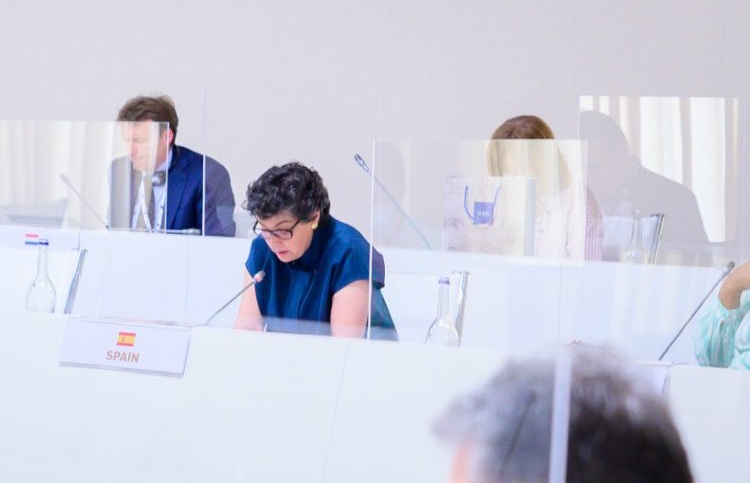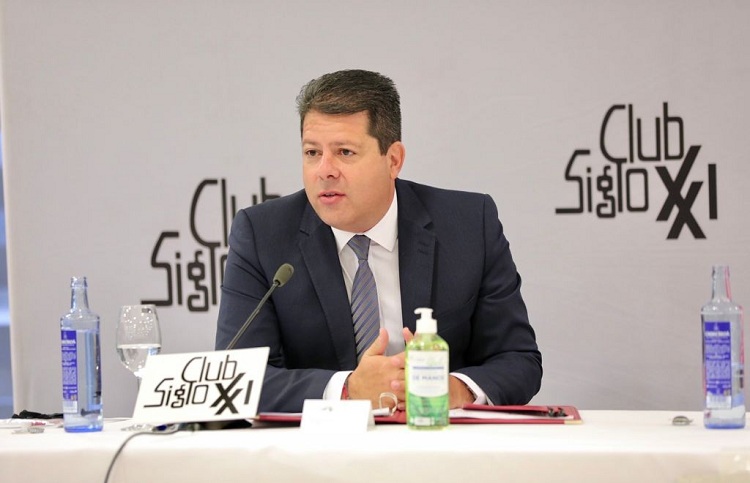The Diplomat
The Minister of Foreign Affairs, Arancha González Laya, warned yesterday before her counterparts of the G20 member states that “only three percent” of Africans have received the COVID-19 vaccine, “compared to 40% in Asia or 70% in Europe and North America”, so she urged this organization to lead “equitable access to vaccines”.
González Laya participated yesterday in Matera, in southern Italy, in the G20 Foreign Ministers’ Meeting, followed by a Joint Meeting of Foreign and Development Ministers. The meeting was organized by the Italian Presidency of the G20 and the Minister was accompanied by the Secretary of State for International Cooperation, Ángeles Moreno Bau. As usual, Spain attended the event as a permanent guest country.
As she herself explained to the press at the end of the meeting, González Laya warned her counterparts that the world is facing “three urgent issues to which the G20 family has to respond with political leadership”. The first of these, she said, is “equitable access to vaccines, particularly for the African continent”. “Only three percent of this continent is vaccinated at the moment, compared to 40% in Asia or 70% in Europe and North America”, she continued.
“Spain has capitalized COVAX with more than 300 million euros so that countries that do not have the resources can have access to the vaccine, and has made available to the countries 22 million vaccines that are going to start arriving throughout the month of July”, she explained. Both contributions had already been announced by the President of the Government, Pedro Sánchez, at the beginning of June during his speech at the Gavi COVAX Advance Market Commitment virtual summit. “I have made this clear at this meeting and it has been very well received, especially by African countries”, the minister added. “What is important is that we move forward in ensuring equitable access to vaccines for all citizens so that we ensure our own recovery,” because “we cannot fully recover until the rest of the world is vaccinated as well”, she added.
The other two urgencies conveyed by the Minister at the meeting are “the priority of access to financing for economic recovery, with special attention to middle-income countries”, and the climate urgency, a challenge in which “the G20 has to lead in ambition”.
In addition, González Laya explained, during the double meeting the global situation in Africa was also addressed. “Here, obviously, I wanted to send a very clear message of Spain’s alignment with African priorities, to improve intra-African trade and help improve access to education for all these great African youth, and also for girls, fundamental if we want women’s emancipation in the future”. Another issue discussed in Matera was that of food security. “COVID has aggravated a problem of food insecurity, with more than 80 million people in dire food need”, she warned. “The G20 must lead efforts to improve access to nutrition and food”, she concluded.
During the dual meeting, the organizers reported, “global governance and sustainable development of the African continent” were addressed and the ministers reiterated the importance of “supporting Africa in fighting inequality, empowering women and youth entrepreneurship, and fostering the green and digital transition”. The first Joint Meeting of Ministers of Foreign Affairs and Development concluded with the adoption of the Matera Declaration, which calls on the international community to build inclusive and resilient food chains and thus “ensure adequate nutrition for all, consistent with the goal of Zero Hunger by 2030”.
The two meetings in Matera were attended by 32 delegations, including ministers from the G20 and African countries and representatives of European institutions and entities such as the UN Food and Agriculture Organization (FAO) or the World Food Program (WFP). The two most notable absences were Russia’s Foreign Minister Sergei Lavrov, who sent his deputy minister Alexander Pankin in his place, and China’s Wang Yi, who participated by videoconference, as did those of Brazil and Australia.







